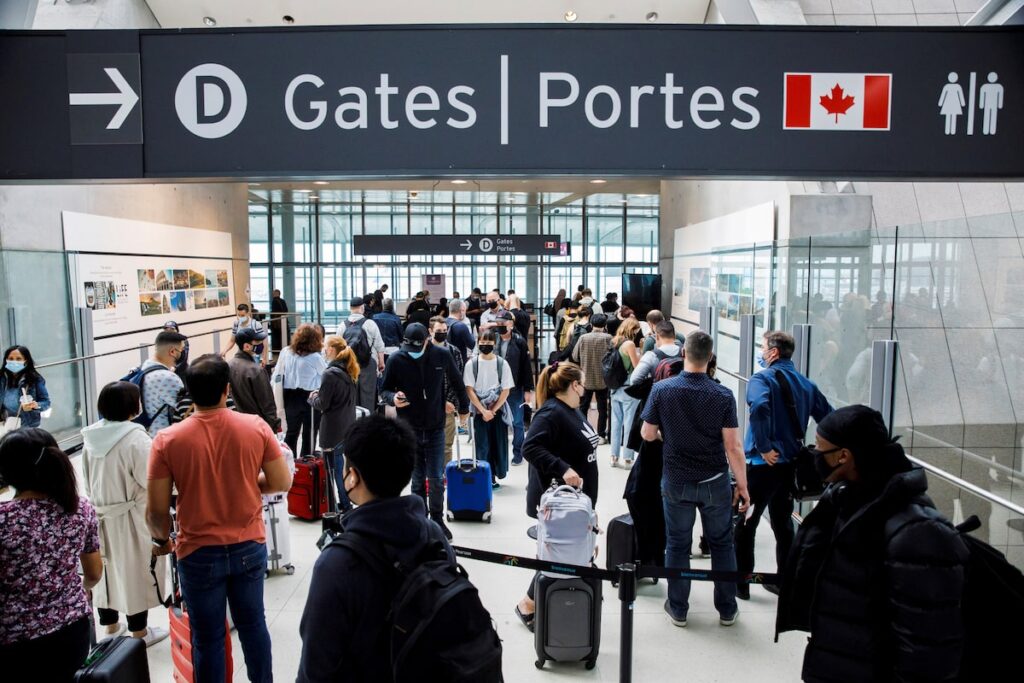Travelers wait in security line at the departure lounge at the start of the Victoria Day holiday long weekend at Toronto Pearson International Airport on May 20, 2022. The Supreme Court will hear government and industry arguments for and against Canada’s Air Passenger Protection Regulations.Cole Burston/Reuters
Air Canada, Porter Airlines and several global airlines will file a lawsuit against Canada’s passenger protection rules with the Supreme Court of Canada on Monday.
The country’s highest court will hear controversial government and industry arguments for and against Canada’s Air Passenger Protection Regulations, which came into effect in 2019, and will rule on how airlines should treat customers whose flights are disrupted or whose luggage is lost. I plan to outline the following.
Canada Transport Agency ruleThis regulation has been strengthened over time, and states that airlines are obligated to compensate passengers whose flights are delayed or canceled within a certain period of time and depending on the cause. There are also standards that provide late-arriving customers with compensation for meals, lodging, and lost or damaged luggage.
The airline industry, led by the International Air Transport Association, lost an appeal of the rules in a federal appeals court in 2022, with the exception of some baggage rules. The Supreme Court of Canada agreed to hear the industry’s appeal of the decision. hearing It is scheduled for Monday morning in Ottawa.
The airlines argue that Canada has no right to impose rules on foreign airlines and that the damages will outweigh the actual losses suffered by passengers.
The government said the rules were designed to ensure passengers were treated in a fair and consistent manner, especially as the surge in travel following the lifting of pandemic restrictions revealed the industry’s unpreparedness.
This regulation applies to all airlines flying to, from, or within Canada. Passengers whose flights have been canceled are entitled to a refund or a seat on the next available departure flight or another airline, the airline said. Airlines must also compensate passengers for any inconvenience caused by flight cancellations or delays, if the reason for the delay is within the airline’s control. The amount varies depending on the length of the delay and the size of the airline, but for delays of more than 9 hours he can reach $1,000.
But airlines and passengers alike say the complaint resolution system is unfair, complex and time-consuming. The CTA, which handles passenger complaints, has a backlog of about 70,000 cases, the agency announced Thursday.
The government is proposing stricter rules that would make it harder for airlines to avoid liability for delays.
The proposed changes would eliminate a “safety” loophole that would automatically exempt airlines that cancel or delay flights from providing compensation, free meals or other assistance to passengers in some cases.

